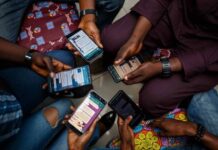After the “successful” abduction of 39 students of Federal College of Forestry Mechanisation in Afaka, Igabi Local Government, the bandits have become more daring; taunting Governor Nasir El-Rufai, with more attempts to abduct students according to reports.
Samuel Aruwan, the state’s Commissioner for Internal Security and Home Affairs told of how armed men invaded Government Science Secondary, Ikara and how the army foiled the attempt and rescued all 307 students.
Earlier on there was an attempt to abduct students of a Turkish school in Kaduna, which was equally foiled by troops. On Monday, three teachers were also abducted from a school in Birinin Gwari.
All these happened in Kaduna state within a spate of one week. So, while we lament, and fear the worst for families and victims already in captivity, these career criminals make fortunes from our collective agony and years of neglect of the critical sectors.
The North, which is at the receiving end of a multiple mix of banditry, Boko Haram insurgency and poverty is the education backwater of Nigeria. The current flurry of the abduction of students, whether by bandits or Boko Haram, will further widen the education gap between the North and the South thereby potentially reducing the manpower development capacity of the region.
In 2018, the number of students from the North, who had five credits including in Maths and English, a requirement for university admission was 32% as against 56% for students from the South.
Most of the almost 13.2 million out-of-school children in Nigeria according to UNICEF, reside in the North while 60,000 orphans reside in IDP camps in Borno state alone. Generally, a 2018 statistics by statistics.com shows the South having 88.1% literacy level for male and 79.6% for female, while the North has 60.9 % male and an abysmal 36.8 for female. Hundreds of schools have also been shut.
This is a dire situation that will potentially be compounded by the increasing rate of abductions of students in both secondary schools and higher institutions of learning.
One cannot ignore how daring this criminal gang has become.
The incessant abductions in Kaduna state lately are not unconnected to Governor Nasir El-Rufai’s assertion that he would not dialogue with criminal bandits, thereby confirming the governor’s worst fear—criminals should not be treated with kids gloves in the name of dialogue, negotiation, agreement or truce. These bandits have tasted money and only full and decisive application of the force of law can deter them from this dastardly act.
One cannot even quantify the menace of school-related abduction and its existential threat to the psyche of victims, education and society in general. The emotional separation of persons running from the scene of (abduction) as their loved ones are being killed or taken away. Fathers escape as helpless sons are whisked away and vice versa, wives watching husbands being shot dead, and mothers parting with children, seeking self-survival first as dictated by the first law of nature are agonising indeed.
“I watched as my father and brother were killed, I had no choice but to run for my life, because they were shooting sporadically at people,” a survivor told Daily Trust in a report published last Sunday, and yet another woman lost five children to banditry.
An intriguing part of the saga is the sheer size of the kidnappers, sometimes numbering up to 40 or even 50 especially in mass abduction cases like Chibok girls, Kankara boys, Kagara students and even the Jangebe case in Zamfara state.
My God, where were we when our country became a haven for criminals, such that 40 to 50 of them could go on a mass abduction mission at once without anyone noticing? Where was the leadership and security apparatus when the country got entangled and encircled by bandits and criminals?
With 50 or 40 bandits going on this kind of “expedition” and going by the ordeals of victims, is indicative of the fact that it is a network of organised crime that gives you that eerie feeling that beyond the daily activities of your environment, another world, possibly parallel to yours, exists around your communities, neighbourhoods and towns, that keeps you perpetually suspicious of your next-door neighbour.
How about the much talked about negotiation or peace deal as canvassed by Sheikh Ahmed Gumi? How do you dialogue with disparate groups with mercenary motives, demanding for ransoms that are out of this world such as the N500 million bounty on the College of Forestry abductees vis-a-vis the reality of empowering these abductors to keep coming at us?
How do you even contemplate rapprochement or make overtures to AK-47 wielding hooded men; people not identified with any cause? How appropriate and on what basis anyway? The experience of those who tried this mode of pacifying criminals in the past is enough a lesson. If in doubt, ask Governor Aminu Masari of Katsina.
The Birnin Gwari case is another example of how not to negotiate or dialogue with your tormentors. In a report of how bandits killed 212 people in 10 LGs within two months, Daily Trust reported on how two rival groups’ fight led to more bloodshed for the people of Birnin Gwari and the environs. For the bandit, a life lived in the jungle with plenty of money to play with may be difficult to adjust to.
And that takes me to the sophisticated arms on display; the RPGs, AAs, AK-47s etc, where are they from and how can we stop their flow from their source, to ensure our children’s future is not bleak, and for them to freely go back to school without looking over their shoulders, learn and play without fear; and back to a time when parents used to send their children to remote places under the protection of government and school administrators.
If attacks on schools are not curtailed, the rural-urban migration which has already been compromised in the urban centres may be heading for implosion. The statistics are grim indeed: the North-South education imbalance will widen and more out of school children will be recorded in Nigeria with its attendant threat to national cohesion.
When the Safe School Initiative was launched in April 2014 shortly after the Chibok girls were whisked away from their school in Chibok, Borno state, there was optimism that the narrative of the out-of-school children would change soon. Alas, little did we know that would be the beginning of woes for school-going students.
The initiative was targeted to reach 500 schools with a pledge of $10 million dollars by a coalition of Nigerian business leaders working with the UN special envoy for Global Education, Gordon Brown, the Global Business Coalition for Education and A World at School.
The initiative involved transfers of secondary school students in vulnerable schools, education in IDP camps and piloting of safe school models.
Although it is safe to ask how far with the SSI, all that has been overtaken by recent developments in banditry. With the president’s directive to shoot bandits at sight—although school children in dormitories do not bear arms—security agencies now know they have the president’s backing to smoke bandits out, by strengthening investigation mechanism and getting bandits and their collaborators apprehended.
In collaboration with the police, the judiciary should implement the different legal frameworks in place and ensure anyone caught is prosecuted in accordance with the laws of the land.
It is convenient to reckon that these abductions also exposed the underbelly of boarding schools in the North—so ill-equipped, so exposed and not habitable even for sub-humans. So where has all the money budgeted for education gone? This is an auspicious time to investigate and to follow the money.
It is an opportunity to do a risk assessment of our schools, the threats to them and their vulnerability. Most of us adults today are products of public schools; increasingly they are becoming no go areas for this generation.
Private schools are not enablers of mass education and lack of access to education portends trouble on the horizon for all. We need a clean break from the past in finding solutions to the menace of banditry and insurgency especially those seeking soft targets like our schools.
Zainab Suleiman Okino can be reached at zainabsule@yahoo.com or www.zainabokino.blogspot.com.
Follow the Neptune Prime channel on WhatsApp:
Do you have breaking news, interview request, opinion, suggestion, or want your event covered? Email us at neptuneprime2233@gmail.com





